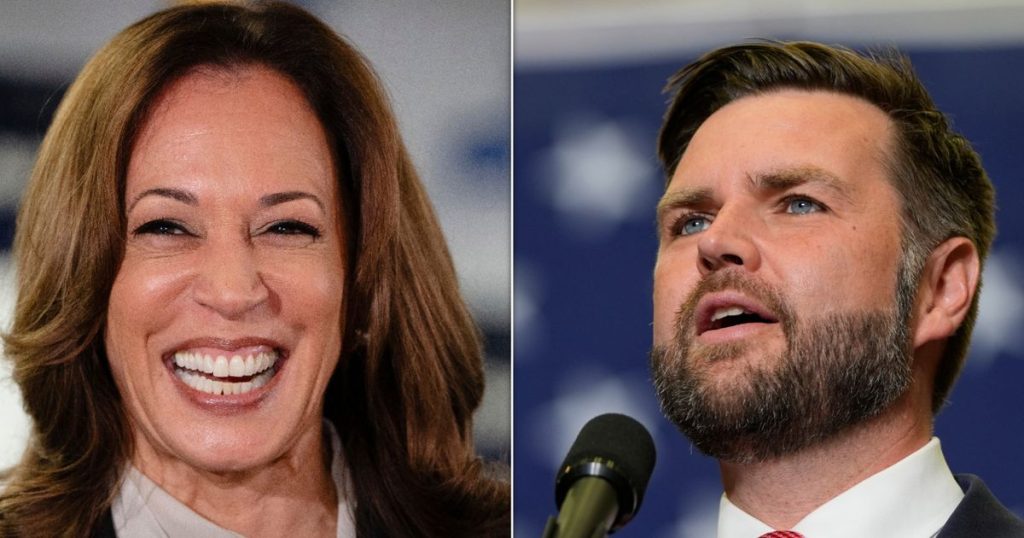Republican vice presidential nominee JD Vance recently attempted to insult presumptive Democratic presidential nominee Kamala Harris in a bizarre way. The man behind the bestselling book “Hillbilly Elegy” seemed to have confused the meanings of the words “wacky” and “weird.” While “wacky” typically refers to something eccentric or amusingly irrational, “weird” is more commonly used to describe something strange or bizarre. This mix-up did not go unnoticed by many people on social media platforms like X, formerly known as Twitter, who mocked Vance’s use of the word “wacky” to describe Harris.
The Ohio senator’s failed insult garnered attention as people pointed out the subtle but significant difference between the definitions of “wacky” and “weird.” This incident serves as a reminder of the importance of word choice and communication, especially in the realm of politics where every statement is scrutinized. Vance’s attempt at insulting Harris inadvertently highlighted his own lack of attention to detail or perhaps his unfamiliarity with the nuances of the English language. The mockery and ridicule that followed on social media platforms further emphasized the potential repercussions of such gaffes in the public eye.
Despite the negative fallout from his poorly chosen words, Vance’s blunder may have inadvertently drawn attention to the ongoing political debate surrounding Harris and her candidacy. By sparking conversation and becoming the subject of online ridicule, Vance’s misstep inadvertently brought more visibility to the presidential race and the contrasting platforms represented by the Republican and Democratic nominees. While the incident itself may have been forgettable, the subsequent discussions and reactions it generated shed light on the power of language and its role in shaping public perception.
The incident involving Vance’s ill-advised insult also reflects the broader landscape of contemporary political discourse, where language and rhetoric play a central role in shaping public opinion and influencing voter behavior. In an era defined by social media and digital communication, public figures like Vance must navigate the complexities of language and messaging with care and precision. Failure to do so can lead to embarrassing missteps and public backlash, as evidenced by the reaction to Vance’s use of the word “wacky” to describe Harris. This incident serves as a cautionary tale for politicians and public figures alike, highlighting the importance of thoughtful communication in the public sphere.
As the political landscape continues to evolve and adapt to the digital age, incidents like Vance’s misstep serve as reminders of the power of language and the need for precision and clarity in communication. In an era where every word is scrutinized and dissected on social media platforms, public figures must be more mindful than ever of the impact of their words and the potential consequences of language that is imprecise or poorly chosen. While Vance’s failed attempt at insulting Harris may have been quickly forgotten, the incident itself serves as a valuable lesson in the importance of language and communication in contemporary politics.
In conclusion, Republican vice presidential nominee JD Vance’s attempt to insult presumptive Democratic presidential nominee Kamala Harris in a peculiar way backfired as many people on social media platforms mocked his mistaken use of the word “wacky.” The incident highlighted the importance of word choice and communication in the public sphere, particularly in the highly scrutinized world of politics. By inadvertently drawing attention to the ongoing political debate and generating discussions about the power of language and rhetoric, Vance’s blunder serves as a cautionary tale for public figures navigating the complexities of digital communication and social media in the modern era.


